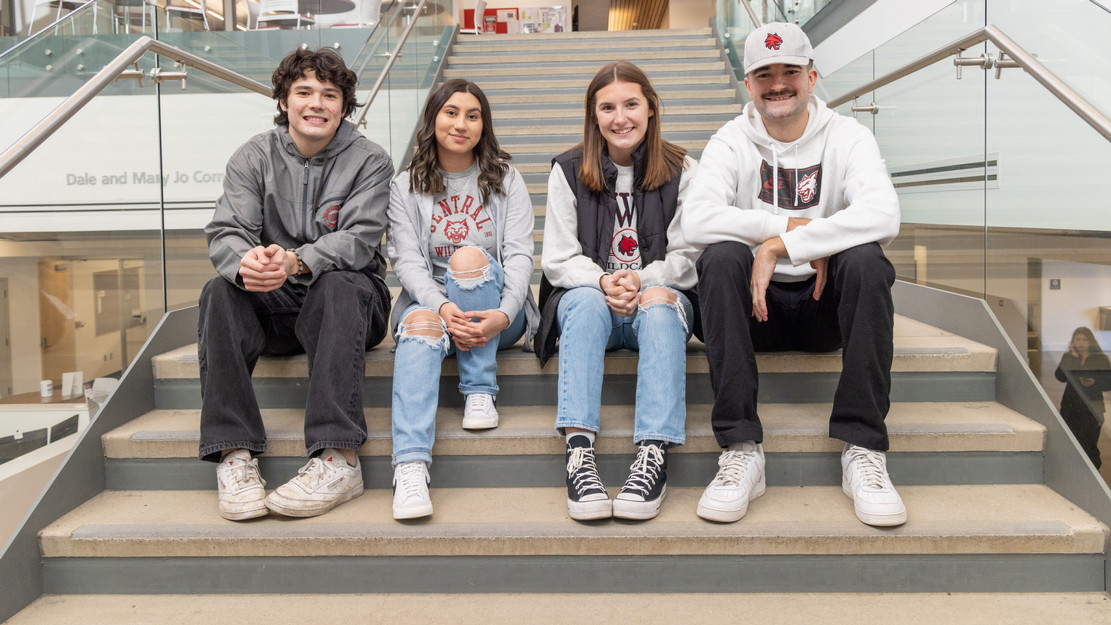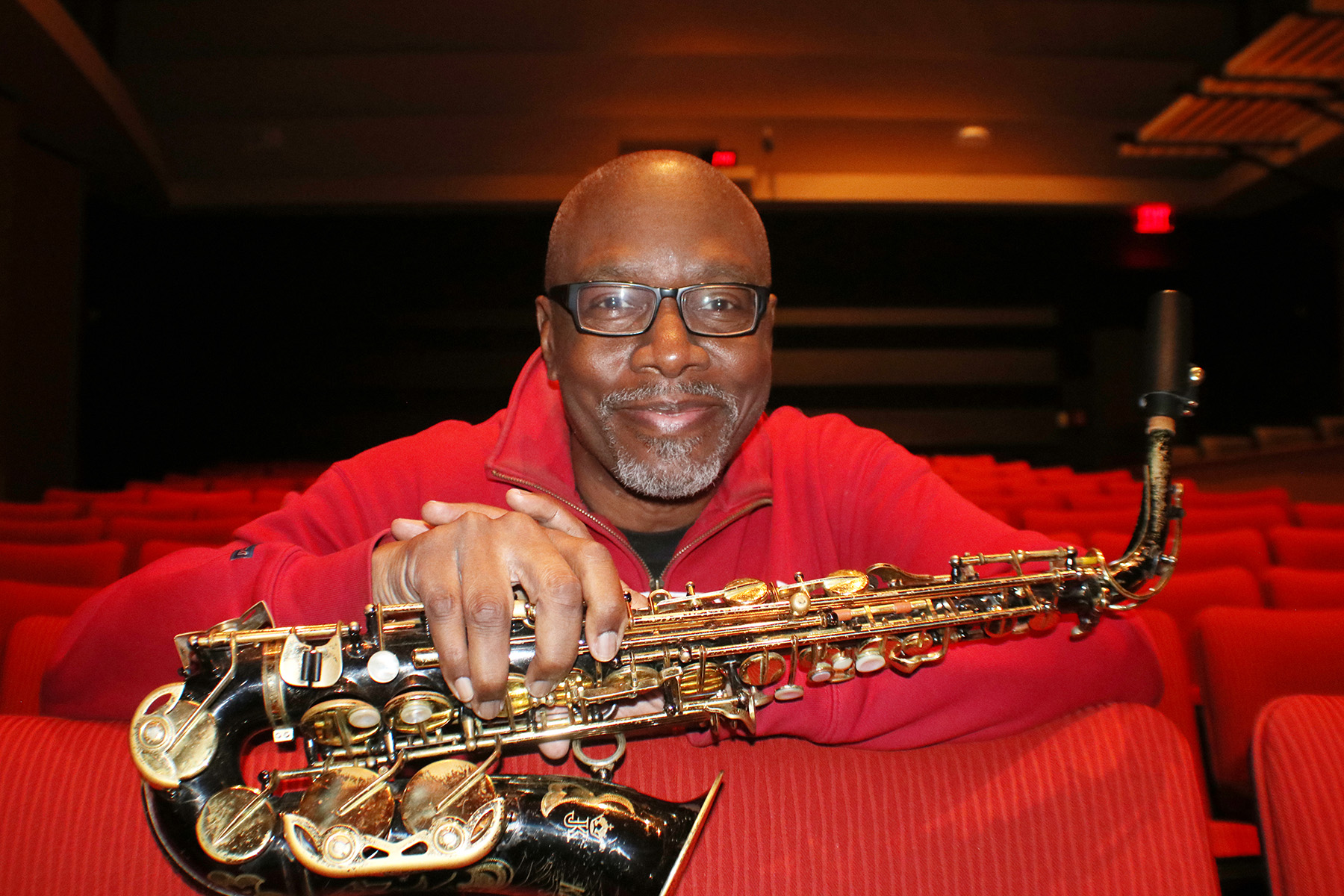
CWU General Education
A Foundation for Lifelong Learning
Knowledge Areas are designed to offer students opportunities to learn concepts and practice skills that are critical for success in our dynamic, diverse, and global society.
Knowledge Areas
-
Knowledge Area 1: Academic Writing II Learner Outcomes
Academic Writing II (AWII) courses prepare students with skills in research-based academic argument through assignments involving evaluation, analysis, and synthesis of multiple sources. Individual sections will be linked to specific pathway topics. Courses are approved for the AWII Knowledge Area based on their capacity to offer students opportunities to attain the learning outcomes below.
You will:
- Analyze and critique an argument, evaluating its rhetorical effectiveness and identifying underlying assumptions.
- Identify and synthesize high-quality sources and use them effectively in support of an argument.
- Take a position on an issue by developing a focused assertion based on a shared assumption, presenting evidence in support of a line of reasoning, addressing divergent stances on the issue, and using a variety of rhetorical appeals.
- Cite and document sources precisely and effectively according to the guidelines of a specific style manual.
- Describe the interrelationship between style and meaning and make adjustments to style to enhance meaning.
- Craft prose that conforms to academic conventions and to expectations regarding clarity, coherence, and unity.
-
Knowledge Area 2: Community, Culture, and Citizenship Learner Outcomes
Community, Culture, and Citizenship (CCC) perspective engages students with historic and contemporary political, ethical, cultural, socioeconomic, and other emerging issues affecting society. By grappling with the intersection of social concerns, students will learn how societies are created and how to contribute to them as effective citizens. Courses are approved for the CCC Knowledge Area based on their capacity to offer students opportunities to attain the learning outcomes below.
You will:
- Articulate the requirements of informed citizenship based on analyses of social, cultural, economic and/or political processes, issues, and/or events.
- Explain how social, psychological, and/or culturally diverse experiences create value in a community.
- Analyze relationships between local, national, regional, and/or global cultures and community, citizenship, politics, and/or government.
- Describe how historical, social, economic, and/or cultural developments have affected communities, citizenship, politics, and/or government.
-
Knowledge Area 3: Creative Expression Learner Outcomes
Creative Expression (CE) perspective allows students to explore aesthetic expression and artistic perspectives on common themes in the literary and fine arts. Courses are approved for the CE Knowledge Area based on their capacity to offer students opportunities to attain the learning outcomes below.
You will:
- Acquire appropriate vocabulary and engage in discourse about aesthetic expression and/or experience.
- Demonstrate an understanding of aesthetic activities within their historic, artistic, and cultural traditions.
- Apply aesthetic judgment and critical thinking by experiencing and evaluating works of art.
- Demonstrate knowledge of aesthetic expression from diverse perspectives.
-
Knowledge Area 4: Global Dynamics Learner Outcomes
Global Dynamics (GD) perspective focuses on how individuals, groups, communities, and nations function in a global society. Students will gain a cultural awareness and sensitivity that prepares them for citizenship in a diverse, global society by developing an understanding of how culture shapes human experience, an appreciation for diverse worldviews, and an awareness of the complexity of the interactions among local, regional, national, and global systems. Courses are approved for the GD Knowledge Area based on their capacity to offer students opportunities to attain the learning outcomes below.
You will:
- Develop ability to identify, analyze and evaluate underlying global, national, and local issues in the present or in a historical context.
- Demonstrate an understanding of how diversity, inequality or privilege interact with social, economic, and political power globally.
- Demonstrate an understanding of concepts and processes required for decision making, participation in civic or international affairs, economic productivity and global stewardship.
- Develop ability to effectively address significant issues and articulate impacts on global issues that may be social, cultural, economic, historic, or political.
- Apply knowledge and skills to address complex global problems using interdisciplinary perspectives and conceptual models.
-
Knowledge Area 5: Humanities Learner Outcomes
Humanities (HUM) perspective focuses on helping students interpret their world, culture, and perspectives through the study of philosophical, literary, and historical forms. Courses are approved for the HUM Knowledge Area based on their capacity to offer students opportunities to attain the learning outcomes below.
You will:
- Read and respond in oral and written forms to literary, philosophical, historical, or religious works from a variety of cultures.
- Synthesize understanding of past humanistic knowledge with current knowledge, making connections between past and present
- Analyze alternative ways of articulating and interpreting human experience.
- Identify their own linguistic, conceptual and normative presuppositions.
- Analyze the ways in which linguistic, religious, philosophical, and historical circumstances shape human experience.
-
Knowledge Area 6: Individual and Society Learner Outcomes
Individual and Society (IS) perspective focuses on the relationship between people and their socialization. Students will be exposed to connections between behaviors, perspectives, psychology, and influences affecting everyday life. Courses are approved for the IS Knowledge Area based on their capacity to offer students opportunities to attain the learning outcomes below.
You will:
- Identify basic principles and institutions that underlie the cultures and traditions of groups, organizations, societies, or nations.
- Describe theories about individuals, social processes, social networks, or the relationships between individuals and society.
- Explain and apply diverse empirical methods to investigate and analyze individuals, groups, or societies.
- Analyze human behavior, perspectives, or cultures using theory and research.
- Articulate ways that social diversity shapes attitudes and values affecting the respect and equality of others.
-
Knowledge Area 7: Physical & Natural World Learner Outcomes
Physical & Natural World (PNW) perspective introduces the core practice of science: generating testable explanations. Students will be introduced to fundamental scientific concepts and will engage in scientific practices. Courses are approved for the PNW Knowledge Area based on their capacity to offer students opportunities to attain the learning outcomes below.
You will:
- Describe how scientific discovery and research in a particular discipline contribute to society.
- Describe how scientists generate testable hypotheses that are grounded in theories that explain and predict natural phenomena.
- Make inquiry-driven laboratory and/or field observations and interpret them.
- Rigorously describe and analyze fundamental processes and components of one or more system within the physical or natural world.
- Analyze and critique claims involving quantitative information.
-
Knowledge Area 8: Science & Technology Learner Outcomes
Science and Technology (ST) perspective focuses on scientific inquiry, intersections with technology, mathematical applications, and connections to the world around us. Courses are approved for the ST Knowledge Area based on their capacity to offer students opportunities to attain the learning outcomes below.
You will:
- Describe how scientific, technological, and/or mathematical developments contribute to our lives and create value.
- Recognize social, political, and ethical implications of scientific and/or mathematical discoveries and technological advancements.
- Formulate questions that can be addressed through scientific, mathematical, or technological solutions.
- Apply mathematical and quantitative reasoning to solve problems.
Need Assistance? Contact Academic Advising.
CWU News

Online Master’s of Education program now offers special education endorsement
May 15, 2024
by Rune Torgersen

Lenny Price brings Detroit perspective to CWU Jazz
May 15, 2024
by University Relations